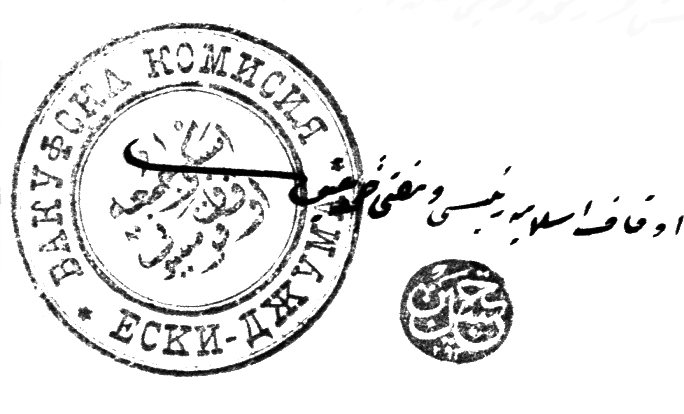Waqf Properties in Bulgaria
Waqf Properties in Bulgaria
Project “The Fate of the Waqf Properties in Bulgaria during the Transitional Period from Imperial to National Governance”
Funded by Scientific Research Fund, Contract № ДН 10/14 / 17.12.2016
Duration – 24 months
Contract Amount – 119 960 BGN
. Project team members:
Project team members:
The aim of this project is to examine in depth and in a long chronological section the issue of the waqf estates on the territory of modern Bulgaria and to locate it in the relevant historical context. By distinguishing itself from the emotional burden that characterizes the public assessments of the Ottoman past of Bulgaria, the project proposal aims to objectively follow the policies of the Bulgarian governments after the Liberation with respect to this imperial institution and to examine them through the prism of historical processes such as state-building and building a national ideology, as well as to study and analyze the most abundant and reliable data on the fate of the waqf property within the territory of Bulgaria. The working hypothesis of the team is that the waqf properties within the post-liberation Bulgaria, covering a solid part of the territory of the Bulgarian space until the liberation, pose a real challenge to the national elites in solving both the pressing problems of their inclusion in the agrarian and economic structures of the new state, and the building of a coherent policy towards the Muslim ethnic community in the country. The examination of these problematic circles and their tracking through the policies pursued by the Bulgarian governments in the period from the Liberation to the present day will, on the other hand, make it possible to outline both the conjunctural political trends in the different periods and the consistency in the policies pursued with regard to the established Ottoman heritage in general and the Turkish minority in particular. Considered in such a long sequence and in its entirety, the problem of the waqf estates in Bulgaria would give a wonderful opportunity for the reflection of a number of social processes in contemporary Bulgarian society, which have deep historical roots.


